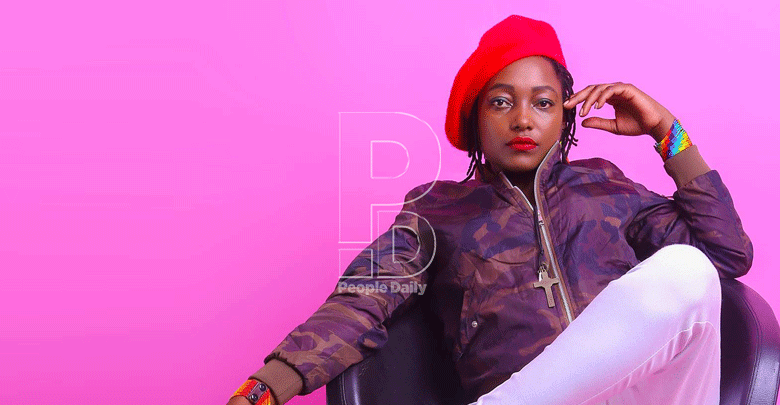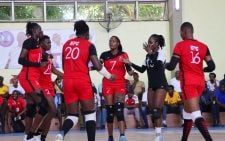Beats from east: Huge reawakening in E. Africa’s hip-hop scene

Currently, there is a huge reawakening in East Africa’s hip-hop scene. More coming together of artistes has brought about the synergy that has been absent for years, writes Manuel Ntoyai
There is huge positive vibe in the region’s hip-hop circles. An increase in the number of collaborations among regional heavyweights is the catalyst to all this, and the winds of hope are once again filling the sails of the ship.
One of the song rocking the airwaves is Last Warriors, a collabo that has seen 13 artistes come together in an over six-minute long song.
It has the group Kikosi Kazi from Tanzania featuring Kenya’s Kaa La Moto, Breeder LW, Trabolee, Kayvo Kforce and Romi Swahili.
“Hip-hop artiste Azma Mponda and I have been talking for a while about reviving the back in the time East African hip-hop that saw the likes of Ukoo Flani Mau Mau and Kikosi Cha Mizinga do their thing.
So, while at it, he mentioned that his group, Kikosi Kazi, were ready and I needed to look for other emcees and hip-hopers from East Africa,” Kaa La Moto says of the collabo.
Avenues of change
Kaa appaluds the young generation of East African hip-hop artistes that are coming up well such as Boutrouss, Wakadinali and Trapsters.
“Of recent years, we have seen a rise in the status of East African music, as we are currently witnessing more collabos that have outgrown boundaries and Last Warriors is one of the projects that is opening doors for all.

It is also inspiring to see the rise of Khaligraph Jones whom we can say at the moment is carrying the East African flag high, and we hope to see more of such,” says the Tanzanian rapper Azma.
Azma opines that Jones is making moves that other legends before him were unable to pull.
This, he says, will help unlock the international market for other hip-hop heads, as outsiders have viewed East Africa was all about singers with the likes of Sauti Sol, Diamond Platnumz and Eddy Kenzo.
His countryman, Nikki Mbishi, says that the hiatus in growth for hip-hop artistes in the region affected penetration of Kenyan artistes in his country, and the only way out is through collaborations, which he says will open doors for musicians from both countries.
“The real hip-hop is coming back, and as a young artiste, I can feel the vibes are coming back in a big way, especially with Kikosi Kazi working with our guys and it helps us expose the different flavours we can showcase.
Other activities such as the UnKut Hiphop Awards are also keeping the culture alive,” says award winning rapper HR The Messenger.
“The scene is buzzing at the moment with numerous projects and gigs coming through.
And unlike a decade ago when we would struggle to front an A-list hip-hop team, that is now settled as other than the three horsemen (Khaligraph Jones, King Kaka and Octopizzo) we have tens of active emcees releasing EPs, mixtapes and albums on a regular basis,” says hip-hop head Ondu “The Street Lawyer”.

According to him, the availability of alternative events where hip-hop creatives can engage their market one-on-one is helping push the narrative while at the same time making sure there is a balance in the game.
“Events such as Hip-hop Garage, 254 Battle Rap, Shrap Night, Fresh Bars Night, Hip-hop and Hood, Rhym Gym, Sauti za Mabinti, Unkut Africa and The Pit are helping nurture the culture,” he adds.
His words are echoed by rapper and Hip-hop Beyond the Mic founder Jay MauMau who reiterates the importance of hip-hop emcees participating in other projects.
“With Hip-Pop Beyond the Mic, we have brought together hundreds of hip-hoppers from the coastal region and Tanzania, where we are helping build capacities in the society.
This helps address issues such as drug abuse and crime, while at the same time imparting them with life skills, which have been beneficial as it boosts their self-esteem,” says Jay.
Over and beyond
Female emcees have not been left behind either. The likes of Ssaru, Bey T, Valerie Muthoni, Monski and Dyyana Cods have been under the tutelage of Wakadinali.
They are the new faces of the rap game, with legends such as MC Sharon continuing to show the way for the upcoming acts.
In Tanzania, the likes of Rosa Ree have broken barriers with her collabos with Kenyan counterparts including Timmy TDat.
This has seen her receive immense airplay, especially with their latest song Hapa.
But, as Sharon intimates, it has not been a smooth journey for a majority of hip-hop artistes.
She says: “Personally, I remember begging for airplay and being told to pay for it using either money I didn’t have or my body.
Refusing to do that and exposing such things earned me more spite than it did love, and to date there are people I do not see eye-to-eye with because of what they said or did to me.
“I remember doing free work and penning weird music that wasn’t meant for me in a bid to fit in. I am not about that vibe anymore.
I took back my power and thanks to the internet, I do not need to limit myself to a market that is likely to fail me again.
The world is a big place and through the internet I can find my tribe wherever they may be.
I used to be very bitter about it, but now that I am free from that burden, I talk about it.”








